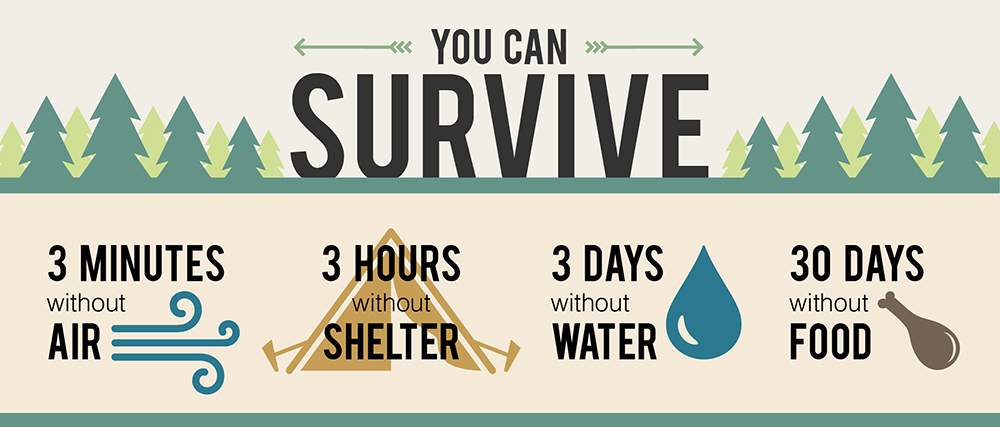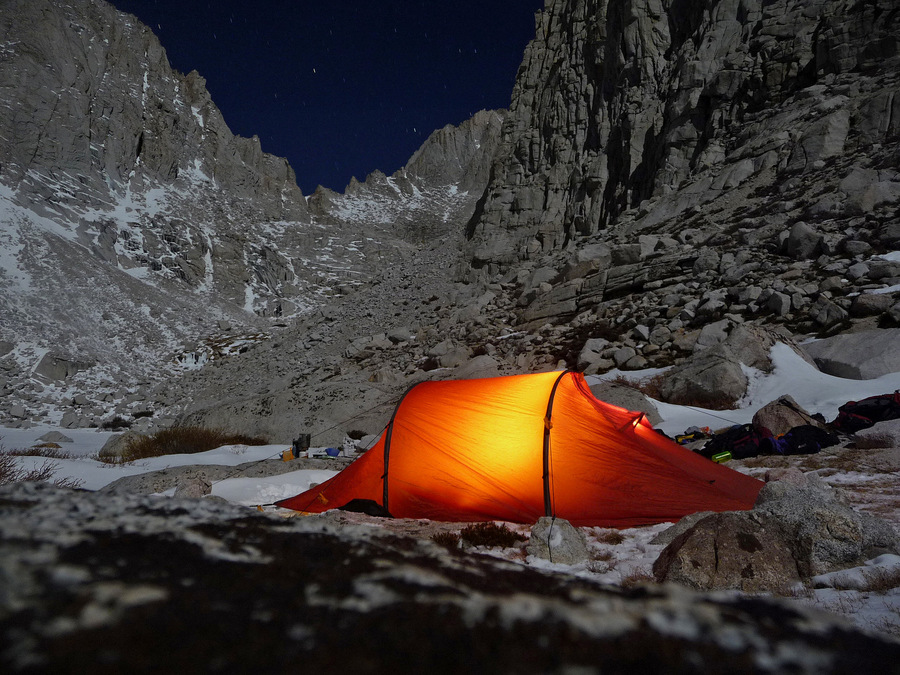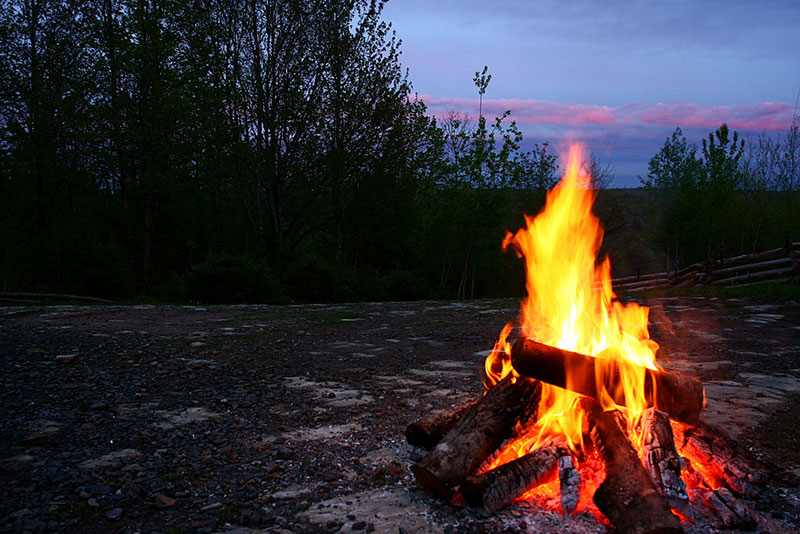No matter what conditions you find yourself in when SHTF, the list of basic survival skills you absolutely must know to survive is surprisingly short. Master these six first to establish a foundation, then build on your skillset from there.
The Best Survival Skills You Absolutely Need
Basic Survival Skill #1: Maintaining the Right Attitude
Attitude could be your single most valuable asset in an emergency. Don’t panic. Having a clear mental strategy will help you to remain calm. What did they always tell the Boy Scouts? Be prepared! It’s great advice and it applies as much to your state of mind as it does to actual skills. The acronym SPEAR is simple to remember and a great readiness tool:
Stop / Plan / Execute / Assess / Re-evaluate
Taking a moment to stop and see what the situation is, rather than panicking, will provide laser focus and force you into action. Having a plan — and it doesn’t have to be overly complicated — will save valuable time in the execution phase. Making a basic assessment of the situation and continually re-evaluating it will ensure flexibility and success.
Attitude is about being ready. You have to understand basic human needs to create an effective survival plan. Know “The Rule of Threes” which states that humans can survive:

Survival Tips: Rule of Threes
Basic Survival Skill #2: Building Shelter
Building a basic wilderness shelter is the second most essential survival skill. Exposure to extreme heat or cold can lead to dehydration or hypothermia, depending on the climate you find yourself in. There are several important things to think about in considering your shelter:
- Will it be a personal or group shelter?
- Location (this is critical, depending on the circumstances of the current emergency, staying clear of hazards)
- Insulation (from weather and the ground)
- Heat source (will you rely solely on body heat or do you need to build a fire?)
You many find yourself in an urban or open country environment during an emergency. In the open, there are several kinds of shelters to consider:
- Debris huts
- Lean-to
- Debris tipi
- Scout pit
- Snow shelters
There are also natural shelters that may be considered, if available: hollow stumps, caves or logs. Depending on the situation, the debris hut is usually the most practical shelter and is adaptable to all environments.

Basic Survival Skill #3: Finding Water
Obviously, hydration is vital for human survival. Nearly 80% of our body is made of water and under the stress of an emergency situation we can become dehydrated quickly. We should, ideally drink about a gallon of water every day. Water is near the top of this list because dehydration is a leading reason that people die in a situation where they may be lost. Finding a clean source of water is important, not only because we need to hydrate but because drinking water polluted with pathogens or chemicals can be just as deadly. In an open country or wilderness setting, the most reliable sources of clean water are collecting morning dew or headwater streams and springs.
There are modern methods for on-the-go purifying and treating water to include iodine and filtering pumps. These are effective if you are on the move in a survival situation and do not have immediate access to clean water sources.
There are also natural methods of clearing water of bacteria and viruses. Grapefruit seed extract is sold as a water purifier, although there is some debate about its efficacy. Boiling water is the most effective way of purifying water. Make sure you allow the water to reach boiling point and then continue to boil it for three minutes to kill viruses and bacteria.
Basic Survival Skill #4: Building a Fire
Shelter and water are top priorities for basic survival, but fire-building skills are also essential. Fire is vital for cooking, basic warmth, boiling water, and drying clothes.
Fire is also critical to your mental health in an emergency situation as it offers a sense of safety and security. It provides protection against animals and insects as well as possibly serving as a signal fire should you be stranded.
When traveling in a survival situation, it is important to have the tools to make a fire, such as a lighter, waterproof matches, or flint and steel. Knowing how to start a fire even without tools is also important. Native Americans did not have lighters, but rather relied on methods such as the bow drill, hand drills, fire-plough, and fire saw. You should practice your fire making skills in all weather and conditions.
Basic Survival Skill #5: Gathering Food
Food is lower on the list, only because humans can survive for nearly three weeks without it. Still, in a survival situation, you will be burning more calories and finding food is an important survival skill. Fortunately, in North America, we have several sources of wild food available such as small game, insects, and plants to meet our daily nutritional requirements.
A few plants that are widely available throughout North America:
- Conifers: the Cambium, or inner bark, is full of sugars and starches and is edible from most cone-bearing evergreens, other than the Yew, which is poisonous
- Grasses: the juice from grass leaves are a source of nutrition, and the roots of the grass can be roasted and eaten
- Cattail: a swamp plant that provides roots, shoots and pollen heads that are all edible
- Oaks: acorns are a rich source calories, fat, and protein (just don’t them raw!)
(Check out our list of the 10 easiest foods to forage in North America)
Use guidance from experts and/or field guides to help you identify edible plants. Many plants look alike and can be poisonous if consumed. The number one rule is: if you are not sure, do not eat it.
Basic Survival Skill #6: Honing Your Naturalist Skills
Nature can be a friend and a foe. In the wild, like anywhere else, knowledge is power. Being aware of nature and her surroundings is a critical survival skill. Being able to track, hunt game, identify plants for nutritional and medicinal purposes can be a matter of life or death. Practice your skills on an ongoing basis and make sure to keep your survival plans and skills up to date. This will help you maintain an attitude of calm, should a crisis arise.
